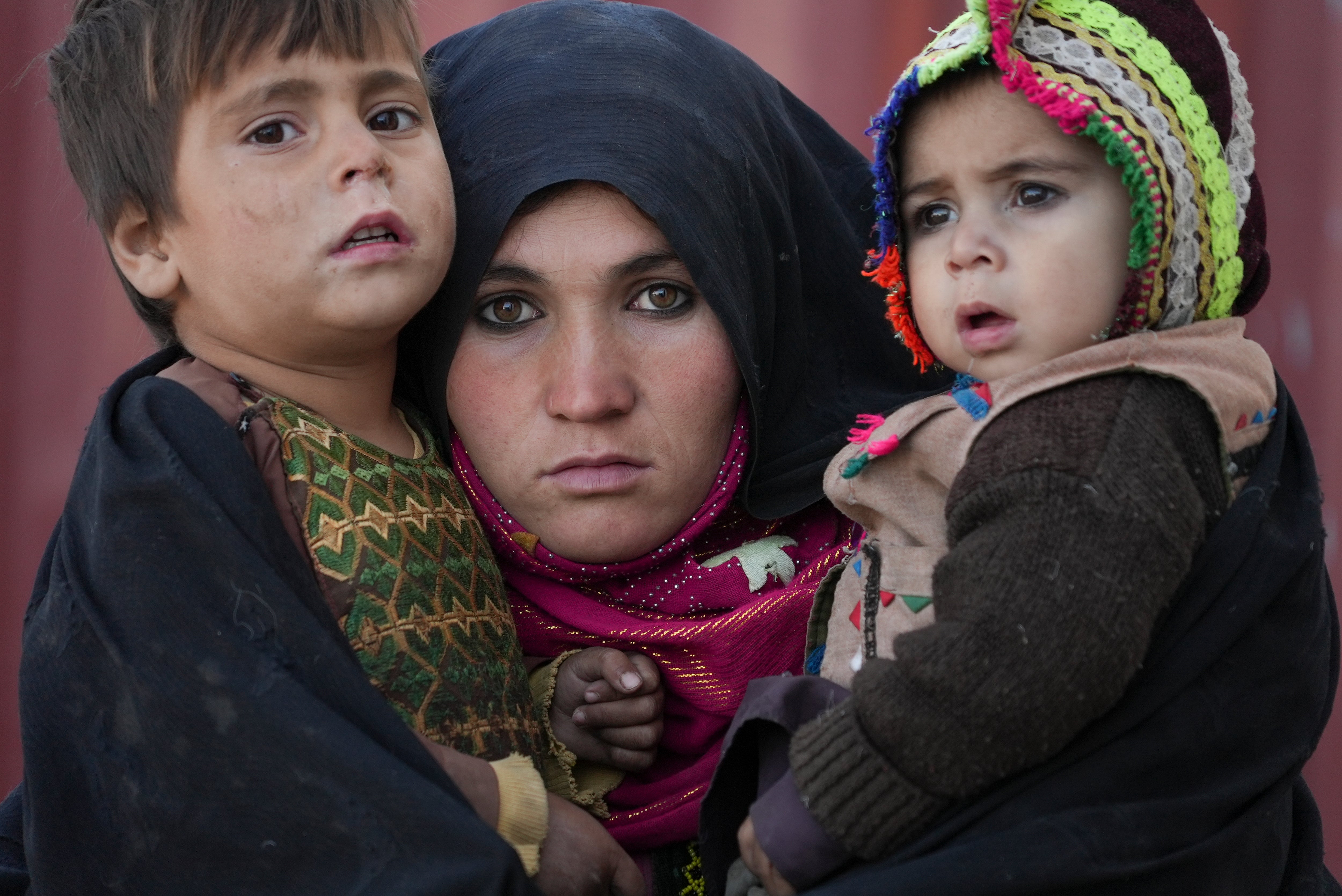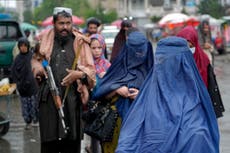No energy to study, play or work: Taliban has ‘shattered’ lives of Afghan girls
‘Some days my father cannot bring food. I don’t eat, and I save my food for my brothers and sisters,’ says teenage girl

The Taliban has shattered the lives of girls in Afghanistan, who are far more likely to be going hungry than boys, a new report has found.
The drought in Afghanistan combined with the economic crisis and the Taliban's stringent rules for girls are having "dire" repercussions on their lives, researchers warned.
Save the Children’s study, which comes almost a year after the Taliban seized control of Afghanistan, found 97 per cent of families are finding it difficult to give their children enough food.
Nearly eight in 10 children said they had gone to bed hungry in the past month, while girls were almost twice as likely as boys to routinely go to sleep while hungry.
Nine in 10 girls said they were eating smaller meals in the past year, have concerns over the weight they are losing and are lacking the “energy to study, play or work”.
Meanwhile, 46 per cent of Afghan girls said they are not going to school, which is more than twice the number of boys who said the same (20 per cent).
Parishad*, a 15-year-old girl living in northern Afghanistan, said she is unable to go to school as her parents cannot afford to feed her and her siblings, let alone the books and stationery she requires to study.
“Some days my father cannot bring food. My brothers wake up at midnight and cry for food. I don’t eat, and I save my food for my brothers and sisters,” the teenager said.
“When my brothers and sisters ask for food, I get upset and cry a lot. I go to my neighbour’s house and ask for food. Sometimes they will help and give me food and sometimes they say they don’t have anything to give me.”
Parishad said her life has changed profoundly in the last year due to her family being evicted from their home as they could not afford the rent, with her parents forced to reject the landlord’s request to buy one of her siblings.
She added: “When we left our old house to come to this house, I was deeply upset and I said: ‘Why are we leaving again? Why are we facing these problems again?’ I was deeply angry, and it was a very difficult time and I cried.
“I would love to go to school. When I see other girls going to school, I wish I could go to school too. Every month we change houses and it’s difficult for us to go to school. We also don’t have any stationery and we need money to buy books. I can’t tolerate it. I can’t do anything about it.”
Parishad urged people to “help my family – and the most vulnerable children and families – with money and food”.
Researchers, who conducted interviews with caregivers, found more than a quarter of girls are displaying signs of depression, compared to 16 per cent of boys.
Some 88 per cent of the children who reported being asked to marry to boost their family’s financial situation in the past year were girls.
The Taliban ramped up their attack on women’s rights in May, ordering women and older girls to cover their faces while out in public and to try to remain at home.
On top of this, the hardline Islamist group also ordered all Afghan women to wear a burqa that covers their faces while out in public. At a press conference in Kabul, a spokesperson for the Taliban said a woman’s father or the male family member closest to her would be visited and eventually jailed or sacked from government jobs if it was discovered that she had infringed the new regulations.
Chris Nyamandi, Save the Children’s country director in Afghanistan, said: “Life is dire for children in Afghanistan one year since the Taliban took control.
“Children are going to bed hungry night after night. They’re exhausted and wasting away, unable to play and study like they used to. They’re spending their days toiling in brick factories, collecting rubbish and cleaning homes instead of going to school.
“Girls are bearing the brunt of the deteriorating situation. They’re missing more meals, suffering from isolation and emotional distress and are staying home while boys go to school.
“This is a humanitarian crisis, but also a child rights catastrophe. The solution cannot be found in Afghanistan alone. The solution lies in the corridors of power and in the offices of our global political leaders.”
Mr Nyamandi urged the UK government to show “renewed commitment to these vulnerable children, through providing immediate humanitarian funding, and working to revive the banking system and support the collapsing economy”.
He added: “Without ambition and focus to address these crucial issues, children’s lives will be lost, and more boys and girls will lose their childhoods to labour, marriage and rights violations.”
The Taliban has escalated restrictions on women since seizing power of the Afghan capital, Kabul, in mid-August last year as US and British forces withdrew. The group, which previously ruled the country, has blocked women from the workplace and secondary education and barred them from taking part in all sports.
* Name has been changed to protect identity






Join our commenting forum
Join thought-provoking conversations, follow other Independent readers and see their replies
Comments